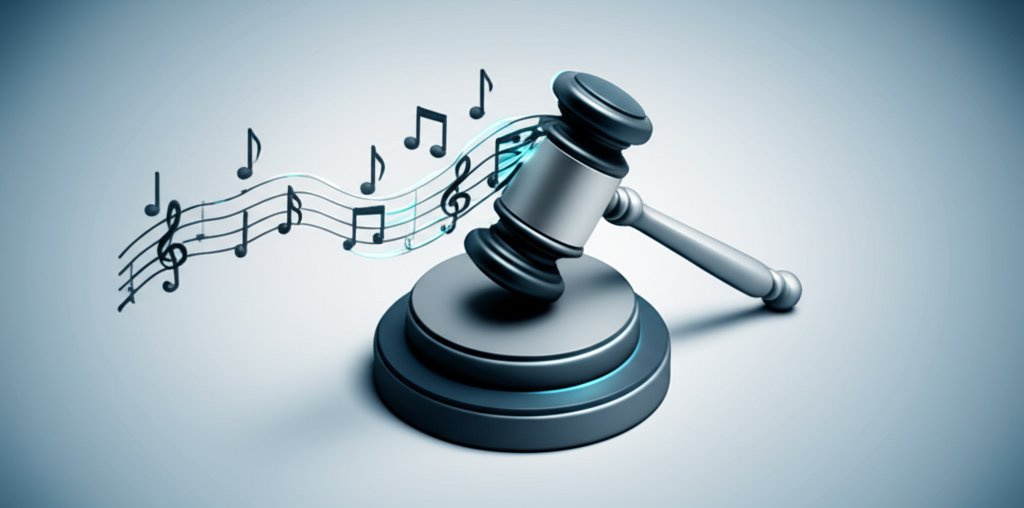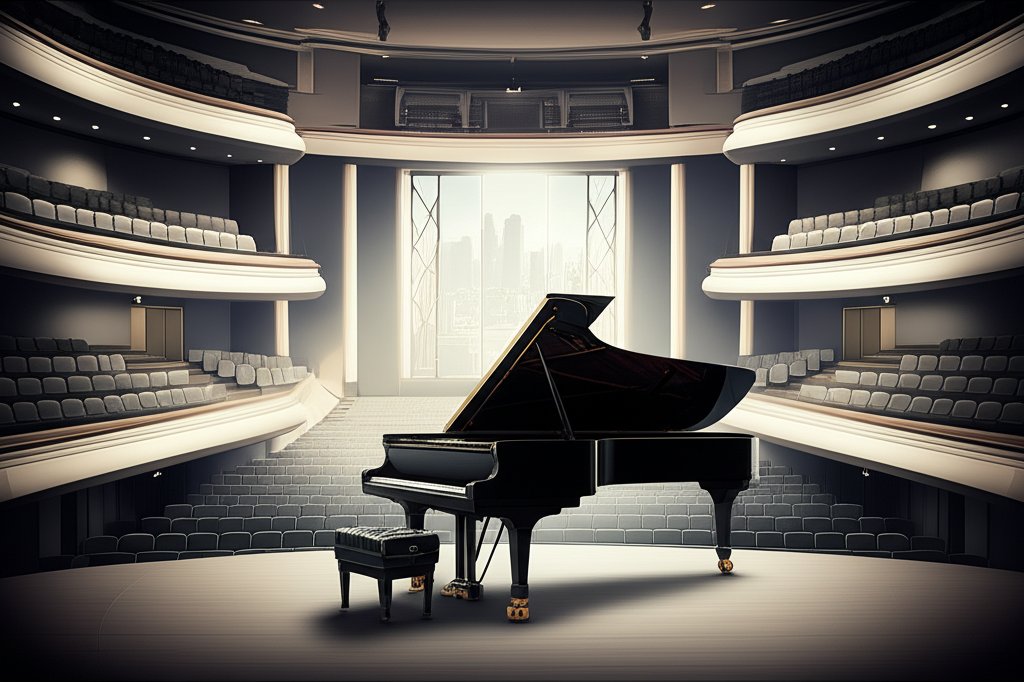For a serious pianist, the dream isn’t just about mastery; it’s about the stage. And in the classical world, no stages are more hallowed than those in New York City. The right piano competitions NYC offers are more than just contests; they are direct pipelines to legendary venues like Carnegie Hall and Merkin Concert Hall. Winning isn’t just about a prize—it’s about a debut, a career catalyst, and the chance to perform where giants have played. But navigating this high-stakes world requires a clear strategy.
This guide breaks down the landscape, helping you choose the right competition, master the application process, and prepare a performance that captures the judges’ attention.
At a Glance: Your NYC Competition Roadmap
- Identify Your Ideal Stage: Learn to distinguish between different NYC competitions based on format (virtual vs. live), repertoire, and age categories.
- Decode Repertoire Rules: Understand why judges request specific pieces, like Classical sonatas, and how to craft a program that showcases your unique artistry.
- Master the Video Submission: Get a step-by-step playbook for creating a professional-quality video audition that stands out in a crowded online field.
- Prepare for the Live Audition: Discover strategies for conquering performance anxiety and making an impact in iconic New York venues.
- See Beyond the Win: Learn how to leverage any competition experience, win or lose, to build your network and advance your career.
Choosing Your Arena: A Strategic Comparison of NYC Piano Competitions
Not all competitions are created equal. Your age, repertoire strengths, and comfort with different performance formats will dictate your best path. The New York scene offers a diverse range of opportunities, each with its own character and demands.
Let’s compare three prominent examples for the 2025 season to see how this plays out.
| Competition Feature | New York International Artists (NYIAA) | Ocean Music International | New York Piano Festival (NYPF) |
|---|---|---|---|
| Primary Format | Online (Video Submission) | Hybrid (Live & Virtual Categories) | Live Performance (Gala Concert) |
| Key Venue | Weill Recital Hall (Carnegie) or Merkin Hall | Merkin Concert Hall | Weill Recital Hall (Carnegie) |
| Age Groups | Specific brackets (e.g., 11-14, 15-17, 18-35) | All pianists up to age 35 | Varies by event/season |
| Repertoire Focus | No concertos; requires Classical sonata + contrasting work | Separate solo & concerto categories | Typically features winners of prior events |
| Ideal Candidate | Pianist with a polished, high-quality recording and strong classical repertoire. | Versatile pianist comfortable with both live pressure and concerto performance. | Prizewinners seeking a major debut performance opportunity. |
| This breakdown reveals crucial strategic choices. If you have a meticulously prepared video of a Beethoven sonata but aren’t ready for the travel and pressure of a live event, the NYIAA is a perfect fit. Conversely, if your strength is a powerful Tchaikovsky concerto that comes alive with an orchestra, the Ocean Music competition is your target. |
Decoding the Repertoire: What the Judges Really Want to Hear

When a competition like the NYIAA specifies “the first movement of a sonata from the Classical period” and “one substantial composition from the 19th century,” it’s not an arbitrary rule. It’s a carefully designed test. The Classical sonata reveals your understanding of form, clarity, and stylistic discipline. The Romantic piece showcases your passion, tonal color, and technical bravura.
The Classical Sonata Test:
Judges aren’t just listening for correct notes. They are evaluating your grasp of sonata-allegro form—how you shape the exposition, develop tension in the development, and bring it home in the recapitulation. Your ability to create a compelling narrative through harmony and rhythm is paramount. Nailing the stylistic nuances of Haydn, Mozart, or Beethoven requires a deep architectural understanding of the music. A solid foundation in how chords function and drive the music forward is non-negotiable, which is why a broader education can be so vital. For pianists looking to build that core interpretive skill set, a focused approach like the one outlined in our Learn Piano Comp Mastery guide can be transformative.
The Contrasting Work:
This is your chance to show your personality. Whether it’s a Chopin Ballade, a Liszt Rhapsody, or a 21st-century piece, the judges want to see a different side of your musicality.
- Case Snippet: A student, Maria, was preparing for the NYIAA. She played a technically perfect Mozart sonata but a lackluster Brahms Intermezzo. Her coach advised her to think about the story in the Brahms, to voice the inner melodies, and to use rubato with intention. By shifting her focus from technical execution to emotional delivery in her second piece, she created a balanced program that demonstrated both discipline and artistry, ultimately placing second in her category.
Your program is your artistic statement. Choose pieces you love and that highlight a wide range of your abilities.
The Virtual Gauntlet: Your Playbook for a Winning Video Submission
With major competitions like the NYIAA moving to a video-first model, your ability to produce a compelling recording is as important as your playing. The screen is your new stage.
Here’s a step-by-step guide to creating a submission that commands attention.
Step 1: Secure the Right Environment
- The Piano: Use the best-tuned grand piano you can access. An out-of-tune or poor-quality instrument will be immediately audible.
- The Room: Choose a space with good acoustics. Avoid rooms that are too “live” (echo-y) or too “dead” (muffled). A concert hall, church, or a large living room with a rug can work well.
- The Silence: Ensure absolute quiet. Turn off phones, air conditioners, and refrigerators. Inform housemates or family not to interrupt.
Step 2: Set Up Your Audio and Video - Audio is King: The jury will forgive mediocre video but not poor audio. Do not rely on your phone’s internal microphone. Invest in a pair of quality external condenser microphones (e.g., a stereo pair like the Rode NT5) and an audio interface.
- Camera Angle: Use a single, fixed camera angle. The standard shot shows your face, hands, and the full keyboard from the side (pianist’s right side is common). This allows judges to see your posture, hand position, and technique.
- Framing and Lighting: Ensure you are well-lit from the front. Avoid backlighting (like a bright window behind you) which will turn you into a silhouette.
Step 3: The Recording and Selection Process - Full Takes Only: Competitions require unedited, continuous takes of each piece. Play through the entire piece multiple times.
- Listen Back Blindly: After recording several takes, listen back with your eyes closed. Don’t watch the video. Choose the take that is most musically compelling and emotionally engaging, not just the one with the fewest noticeable errors. A performance with immense spirit and one minor slip is often preferred over a sterile, note-perfect rendition.
- Upload Correctly: Follow the instructions precisely. The NYIAA requires an unlisted YouTube or Vimeo link. Double-check that your video is not set to “Private,” or the judges won’t be able to view it.
The Live Audition: Thriving Under Pressure in NYC

For competitions like the Ocean Music International or the NYIAA Regional round at The DiMenna Center, the challenge is different. It’s about projecting your artistry in a new space under intense scrutiny.
Before the Audition
- Scout the Venue (If Possible): If you’re local or arrive early, try to see the hall. Understanding the space can reduce anxiety. Note the size of the room and the type of piano. The Norman S. Benzaquen Hall at DiMenna, for example, is a modern, acoustically clear space.
- Simulate the Experience: Perform your entire program for friends, family, or your teacher. Practice walking on “stage” (entering the room), bowing, sitting down, taking a moment, and then beginning. This ritual builds muscle memory and calms the nerves.
- Warm-Up Wisely: Don’t try to cram-practice on the day of the audition. A good warm-up focuses on gentle finger exercises, scales, and playing through a few difficult passages slowly. The goal is to get your hands and mind ready, not to tire them out.
During the Audition
- Own the Space: Walk in with confidence. The judges—esteemed faculty like Zhen Chen or Dr. Kayoung An from MSM Pre-College—are on your side. They want to hear a great performance.
- Take Your Time: After you sit at the piano, don’t rush. Adjust the bench. Take a deep breath. Hear the first few bars in your head before you play a single note. This moment of silence focuses your mind and communicates professionalism to the jury.
- Perform, Don’t Analyze: Once you start, your job is to communicate the music. If you make a mistake, keep going. The worst thing you can do is stop or visibly react. The jury is assessing your overall musicality and professionalism, not just counting notes.
Quick Answers to Common Questions
A few questions always come up when pianists consider entering piano competitions NYC.
Q: Is a virtual competition less prestigious than a live one?
Not anymore. Prestigious institutions have embraced the virtual format for its accessibility and ability to attract global talent. A win at a competition that results in a Carnegie Hall debut, like the NYIAA, carries immense weight regardless of how the preliminary rounds were judged. The prize—the performance—is what defines the prestige.
Q: Are the high application fees ($150+) worth it?
Think of the fee as an investment in a specific outcome. It covers the cost of adjudication by world-class musicians and the administration of the event. More importantly, it’s a gateway to prizes that are worth far more, such as a sponsored debut in a major NYC hall, which can be invaluable for a burgeoning career.
Q: What’s the biggest mistake applicants make?
The most common error is ignoring the specific repertoire requirements. Submitting a concerto to the NYIAA, for example, would lead to immediate disqualification. The second biggest mistake is a poor-quality video submission where bad audio or a distracting background prevents the judges from fairly assessing the performance.
Q: What if I don’t win first prize?
Placing Second or Third in a major NYC competition is still a significant achievement. These prizes, as in the NYIAA, often still include a sponsored performance at a major hall. Even if you don’t place, the process of preparing at such a high level will elevate your playing immensely. You can also request feedback from the jury, providing invaluable insights for your next attempt.
Your First Step Toward a New York Debut
The path to a New York stage is paved with preparation, strategy, and perseverance. Don’t just practice your pieces; practice the entire process of competing.
Here’s your action plan:
- Assess Your Strengths: Are you a live performer or a studio perfectionist? Is your best piece a sonata or a concerto? Be honest about where you shine.
- Shortlist Your Competitions: Based on your assessment, choose 1-2 target competitions for the upcoming season. Go to their websites and mark down every deadline—early bird, final, and late. The NYIAA deadline is June 1, 2025, while Ocean Music’s live deadline is September 25, 2025. Don’t miss them.
- Craft Your Program: Select repertoire that not only meets the requirements but also tells a story about who you are as an artist.
- Execute Your Strategy: If it’s a video competition, start planning your recording session now. If it’s a live event, begin incorporating performance simulations into your practice routine.
The journey through New York’s competitive piano scene is demanding, but the rewards are unparalleled. By choosing the right event and preparing with strategic intent, you’re not just entering a competition; you’re auditioning for the next stage of your career.
- Discover Affordable Singing Lessons Near Me to Unlock Your Potential - February 24, 2026
- Affordable Vocal Lessons Bring Professional Singing Guidance Within Reach - February 23, 2026
- Local Vocal Lessons Offer Expert Guidance for Every Singer - February 22, 2026










